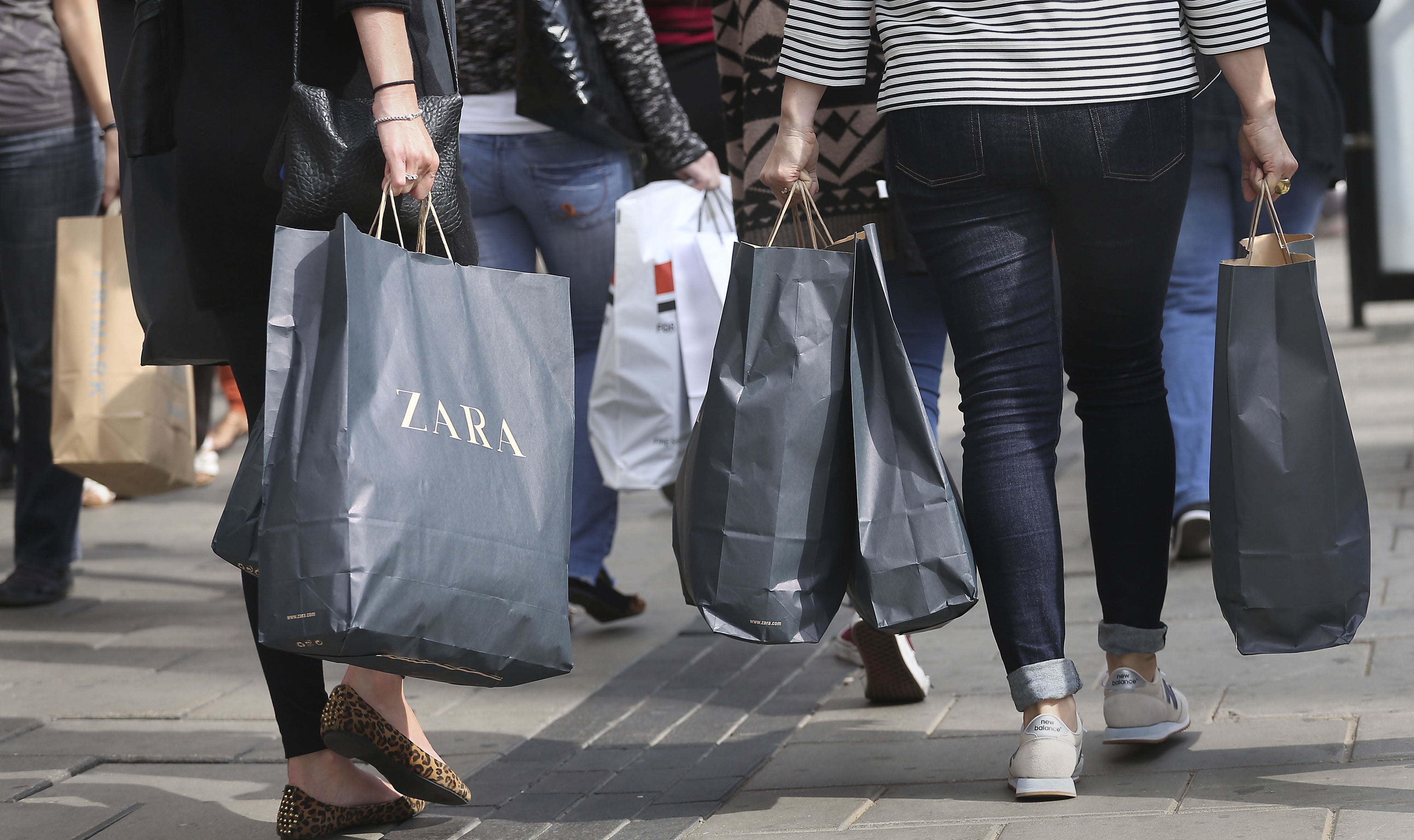Consumer confidence sees steepest decline since early stages of pandemic
The index from YouGov and the Centre for Economics and Business Research has fallen into negative territory for the first time since June 2020.

Your support helps us to tell the story
From reproductive rights to climate change to Big Tech, The Independent is on the ground when the story is developing. Whether it's investigating the financials of Elon Musk's pro-Trump PAC or producing our latest documentary, 'The A Word', which shines a light on the American women fighting for reproductive rights, we know how important it is to parse out the facts from the messaging.
At such a critical moment in US history, we need reporters on the ground. Your donation allows us to keep sending journalists to speak to both sides of the story.
The Independent is trusted by Americans across the entire political spectrum. And unlike many other quality news outlets, we choose not to lock Americans out of our reporting and analysis with paywalls. We believe quality journalism should be available to everyone, paid for by those who can afford it.
Your support makes all the difference.Confidence among UK consumers has fallen into negative territory for the first time since June 2020, according to a survey.
The Consumer Confidence Index from YouGov and the Centre for Economics and Business Research (Cebr) fell by 4.2 points in August from 103.0 to 98.8, the largest decline since the early stages of the pandemic.
It comes as inflation, largely driven by energy price rises, piles pressure on consumers ahead of winter.
Both household finance measures – for the last 30 days and the outlook for the next 12 months – dropped by 3.1 points and 10 points respectively.
Every other measure also saw worsening scores, including the outlook for house prices plummeting by 7.2 points to 124.9.
Perceptions of job security looking ahead fell from 120.9 to 118.5.
The survey was taken between August 1 and 31, before Prime Minister Liz Truss announced her plan to freeze energy bills at £2,500 a year for a typical household.
Kay Neufeld, head of forecasting at Cebr, said: “Following a short-lived improvement in July, the 4.2-point fall in the Consumer Confidence Index in August represents the steepest decline since the early days of the Covid-19 pandemic and drags the headline index into overall pessimistic territory.
“The index was led lower by cratering sentiment regarding future household finances, as warnings about the upcoming increase to the energy price cap reached a climax in August.
“While the announcement of the energy price freeze by the new Prime Minister Liz Truss is expected to alleviate some of the most pressing concerns, weaker sentiment has spilled over into the other constituent metrics of the index.
“Most notably, consumers are more downbeat about the future value of their own home as rising mortgage rates are expected to trigger a price correction in the property market.”
Emma McInnes, global head of financial services at YouGov, said: “This latest dip in consumer confidence exemplifies a longer trend of sustained decline.
“In spite of July’s small uptick, this data from August sees our index score entering negative territory for the first time since the early days of the pandemic in June 2020.
“And, despite the fieldwork for this study taking place before Liz Truss took up office and announced her plan to freeze energy bills for the average household, it’s clear that the new Prime Minister is facing an uncommonly dour public mood, particularly in terms of personal finance.”